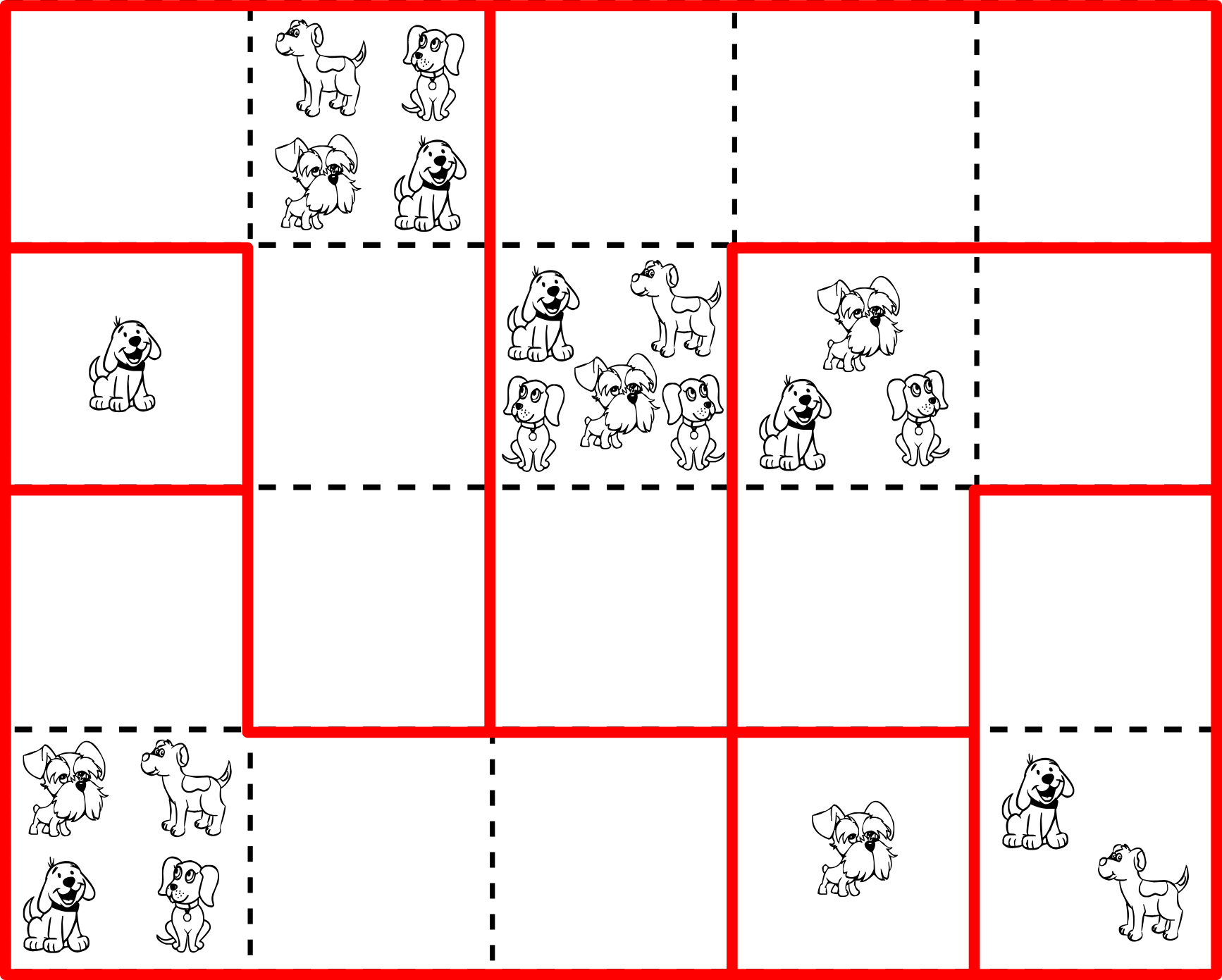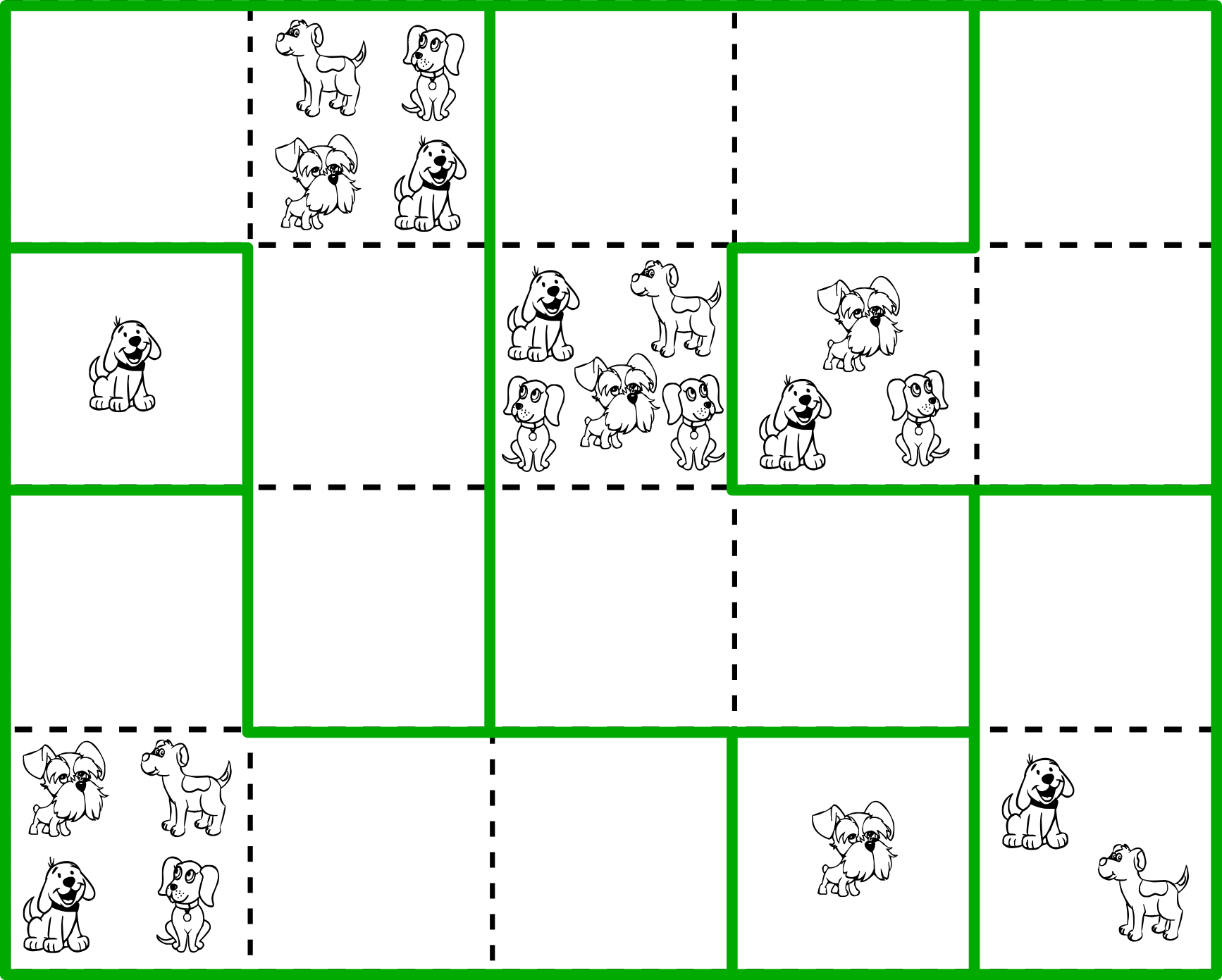Problem of the Week
Problem B and Solution
Crazy Grids
Problem
The grid below consists of four rows, each with five 1 by 1 squares. Seven of these squares contain groups of dogs. These dogs play nicely with other dogs in their own group, but do not play well with the dogs in other groups. You would like to separate the groups of dogs by putting up fences along some of the dashed gridlines.

Find two ways to put up fences that would divide the grid into seven distinct regions, so that each region contains the same number of 1 by 1 squares as dogs.
An example of a different 3 by 3 grid divided into three such regions is shown in the diagram.

Share your solutions with your classmates. Did they find solutions different from yours?
Move the seven groups of dogs to different squares in the grid, and repeat part a) using your new grid. Did you find any arrangements for which there was NO solution?
Not printing this page? You can divide the grid on our interactive worksheet.
Solution
Two different solutions are shown below.


There are six solutions in total. See if you can find them all!
There are many ways to place the dogs. One arrangement for which there is NO solution is to place all seven squares with dogs clustered together in one corner of the grid, like in the grid below.

Since there are seven groups of dogs and we want to divide the grid into seven distinct regions, each group of dogs except the single dogs needs adjacent empty squares in order for a solution to exist. When all the dogs are clustered together like this, there aren’t enough adjacent empty squares, so it is not possible to find a solution.
